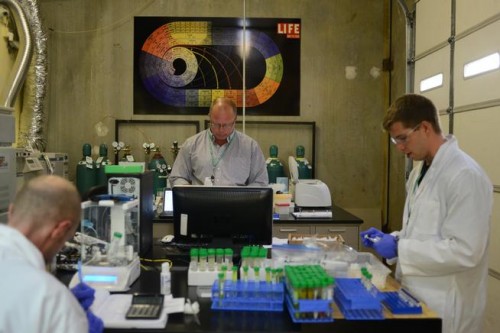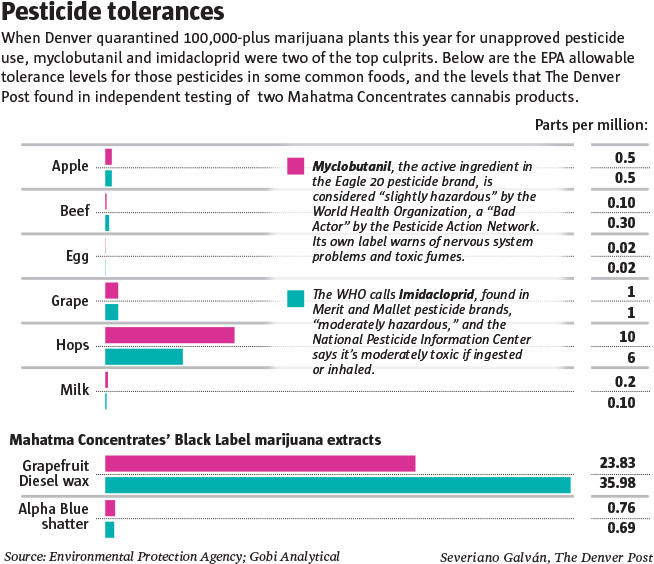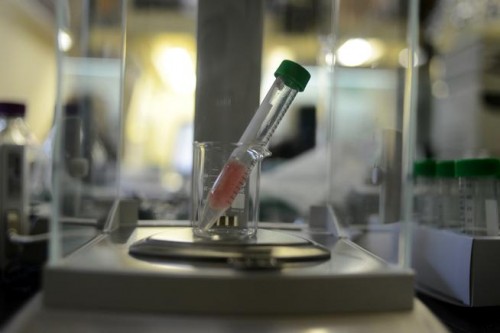Nearly six months after the city of Denver began a crackdown on unapproved pesticides in marijuana products, a spot-check by The Denver Post found that the chemicals were still being sold to consumers.
Eight lab tests commissioned by The Post on recreational marijuana extracts purchased at two shops found most contained no pesticides that are not approved by the Colorado Department of Agriculture.

But two tests on concentrated marijuana products sold at one store found levels of three pesticides the state says cannot be used to grow marijuana (more info at bottom of article). Both items were manufactured by Mahatma Concentrates in Denver, which made its extracts from raw marijuana grown by Treatments Unlimited, which operates the Altitude shops in Denver.
The level for one of the pesticides was six times the maximum amount allowed by the federal government on any food product — and 1,800 times the highest level Denver accepted when it quarantined marijuana plants earlier this year. The pesticides found were myclobutanil, imidacloprid and avermectin.
Treatments co-owner Chase Bradshaw said his company did use products that contained the unapproved pesticides.
“We used to use Eagle 20 (myclobutanil), I will not deny that,” he said. “However, we were never a business that would use it in an illegal manner or preventative manner. It was always as needed, maybe once every three months or once every six months, once a year, but never as a part of a regimen.”
The company has stopped using the pesticide, he said.
THE LATEST DEVELOPMENTS:
None of the pesticides that were found were listed on Mahatma’s product labels as required by state law, The Post found.
Denver health officials said any trace of a disallowed pesticide in marijuana products is worrisome.
“This information indicates a significant public health concern,” said Danica Lee, food safety section manager in the public health inspections division of Denver’s Department of Environmental Health. “These products contain high levels of residues from multiple pesticides, which poses a potential health risk to consumers. The Department of Environmental Health will begin an investigation immediately.”

The amount of pesticides found in The Post’s tests also was a surprise to Peter Perrone, lab director at Gobi Analytical in Wheat Ridge, where the analysis was conducted.
“I was shocked,” Perrone said. “That’s higher than the EPA guidance would allow on either one of those chemicals on pretty much any crop.”
Gobi is the only state-licensed lab used by Denver’s Department of Environmental Health and the Denver City Attorney’s office for pesticide testing.
That so many of the products that were tested showed no trace of unapproved pesticides also was a surprise, Perrone said. A heavy majority of the 1,000-plus cannabis flower, edibles and concentrates he has tested for pesticides since Gobi started its testing program in April have failed.
“Maybe 10 percent of those” were clean of pesticides, Perrone said.
Pesticides in pot
Following up: Pot industry reacts to new Denver scope on pesticide checks
More debate: Can pesticides be eliminated from commercial marijuana grows?
NEW: Get podcasts of The Cannabist Show.
Subscribe to our newsletter here.
Watch The Cannabist Show.
Mahatma co-founder and operations manager Brett Mouser said the company “doesn’t use any banned pesticides” in its own cultivation. He provided paperwork that showed Mahatma purchased the marijuana in the products that tested positive on separate occasions from Treatments in Denver.
“We buy trim on the secondary market, and that trim is what we make our wholesale concentrates out of,” Mouser said. “It’s no secret that the industry was dirty. Is it still dirty now? I don’t know.”
Mahatma’s product labels show the plants actually came from its own growing operation, “an unfortunate labeling mistake” that Mouser blamed on a former employee. He said he did not know how many of his products might have been mislabeled in that manner or for how long.
Mahatma internal tracking paperwork shows the original plants it used to make the products that tested positive for pesticides were harvested at Treatments in December 2014 and March 2015.
That was just before and while Denver health officials quarantined more than 100,000 marijuana plants over concerns about pesticides, including the three identified in The Post’s test results.
Treatments and one of its shops, Altitude East on Jackson Street, was among the 11 marijuana operations whose plants were held by the city and later tested positive for unapproved pesticides, documents show. Over time, most of the plants were released when pesticide residue levels dropped to the lowest amount permissible on food crops.

The Post’s test results further focus concerns about pesticide use on marijuana and highlight just how little information consumers have about what they’re ingesting and how imprecise the regulations are regarding enforcement.
State law requires marijuana businesses to test for pesticide residues, but that requirement has not been implemented since its passage in 2013 because only one lab is certified to do that type of analysis. Companies do test for residual solvents and the potency of the marijuana they sell.
Although pesticides are widely used on crops, their use on cannabis remains problematic and controversial as no safety standards exist. Marijuana is illegal under federal law, and the U.S. Environmental Protection Agency, which strictly regulates pesticides, has never established any limits nor allowed testing on marijuana.
“The most pressing potential health risk in this industry is likely to be pesticides,” said Ian Barringer, founder of cannabis testing facility Rm3 Labs in Boulder. “There has not been any clear health impact to date, but certainly there are concerns about the cumulative impact of smoking potentially pesticide-laden marijuana.
“And since there is effectively so little regulation of what pesticides are being applied and in what quantities, there is ultimately the potential for long-term risk,” Barringer said.
Regulating marijuana
Denver inspections: City health officials cracking down on pesticide use in pot products
SPECIAL REPORT: 15 months in, edibles safety still concern for Colorado
PTSD lawsuit: Complaint filed against Colorado to allow medical pot for PTSD treatment
NEW: Get podcasts of The Cannabist Show.
Subscribe to our newsletter here.
Watch The Cannabist Show.
Denver health officials last week held up hundreds of lozenges and raw marijuana from distribution at two manufacturers until lab tests confirmed that product labels inaccurately indicated the presence of a disallowed pesticide.
The Post had five brands of concentrate tested with the cooperation of the two shops that sold them. State law only allows licensed marijuana companies that produce the plant or its products, or sell them, to test them at state-approved labs.
Consumers cannot independently have marijuana tested in Colorado, though other states allow the practice.
Concentrated marijuana is in a variety of popular products — oil, wax, butter or shatter — and is ingested in ways ranging from inhalation to rubbing on the skin.
The shops agreed to submit the products to Gobi Analytics for an analysis that was paid for by The Post.
Products tested that came from four of the manufacturers — The Lab, TR Scientific, Bolder Extracts and Happy Camper Concentrates Co. — showed no unapproved pesticides, according to Gobi.
Results on Mahatma’s manufactured products, however, found potent levels of myclobutanil and imidacloprid, as well as measurable amounts of avermectin, all disallowed for use in marijuana production in Colorado.
Myclobutanil is considered “slightly hazardous” by the World Health Organization; imidacloprid is considered “moderately hazardous.”
David Migoya: 303-954-1506, dmigoya@denverpost.com or twitter.com/davidmigoya.
Ricardo Baca: 303-954-1394, rbaca@denverpost.com or twitter.com/bruvs
SEE THE LAB RESULTS: View the tests commissioned by The Denver Post
Updated Sept. 14 at 5:34 p.m. The following corrected information has been added to this article: Previous versions of this story misreported Gobi Analytical’s pesticide certification status. Gobi Analytical is the only state-licensed lab used by Denver’s Department of Environmental Health and the Denver City Attorney’s office for pesticide testing.
